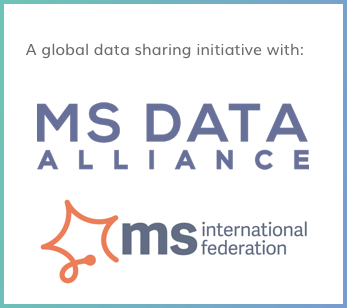MS Global Data-Sharing Initiative
During the COVID-19 pandemic, the MSIF and MSDA collaborated to form a Global Data Sharing Initiative to gather and analyze data on the effects of COVID-19 on people with MS. The findings have directly informed the global COVID-19 advice for people with MS.
The initiative aims to quickly gain insights into the impact of COVID-19 on people with MS, with the goal of informing clinical decision-making during the pandemic.
QMENTA provided its cloud-based platform as the central hub for data collection and analysis, ensuring data security and privacy.
The initiative has since concluded, leaving behind a legacy of global partnerships and evidence-based decisions for the clinical management of MS during the pandemic. QMENTA is certified in compliance with various industry standards such as HIPAA, GDPR, ISO 13485, and FDA Part 11 & 820, ensuring that the data's security and privacy are maintained.
There is a growing need for data on the effects of the virus on people with Multiple Sclerosis (MS). Gathering and sharing this information is critical for making evidence-based decisions regarding the clinical management of MS during the pandemic and for guiding future research. We have shown that when we come together and share data across the world, we can find answers, quickly, to global MS challenges.

Results
A study analyzed 2,340 people with multiple sclerosis and COVID-19, of which 28.1% had suspected and 61.9% had confirmed COVID-19. Among those, 20.9-26.9% were hospitalized, 5.4-7.2% were admitted to ICU, 4.1-5.4% required artificial ventilation, and 3.2-3.9% died. The risk of worse COVID-19 outcomes was associated with older age, progressive MS phenotype, and higher disability. The use of ocrelizumab and rituximab was associated with higher risk of hospitalization, ICU admission, and artificial ventilation compared to other treatments, regardless of age, MS phenotype, and disability. The study suggests that ocrelizumab and rituximab may be a risk factor for more severe COVID-19.
Statistical Analysis
Multilevel mixed-effects logistic regression was used to assess the associations with hospitalization, ICU admission, ventilation, and death, adjusting for age, sex, MS phenotype, and disability. This statistical method was appropriate for accounting for differences in cohort characteristics and procedures across multiple data sources. Subgroup analyses were conducted for comorbid conditions, BMI, and smoking; all analyses were complete cases. The DMTs were compared against each other, and adjustment for multiple comparisons was made using the Holm step-down method. Significant associations after adjustment are annotated in the tables.
COVID-19 Severity by Clinical/Demographic Characteristics
The study evaluated the demographic and clinical characteristics of suspected/confirmed COVID-19 cases who were hospitalized or admitted to the ICU, and who required artificial ventilation or experienced death. In multivariable models, the male sex was linked to higher risks of hospitalization and death, while older age was linked to increased hospitalization and death. The progressive MS phenotype was also associated with a higher risk of hospitalization. A higher EDSS score was associated with increased risks of all outcomes, including hospitalization, ICU admission, ventilation, and death. The findings were similar for confirmed-only COVID-19 cases, except for aged>70 years, which was not statistically significant.
The article lists the financial disclosures of the authors, many of whom have received personal funding from pharmaceutical companies for serving on advisory boards or receiving speaker honoraria or research support. The MS International Federation (MSIF) also receives income from a range of corporate sponsors, including Biogen, BristolMyersSquibb (formerly Celgene), Genzyme, Med-Day, Merck, Mylan, Novartis, and Roche. Some authors have no personal pecuniary interests to disclose, while others have received support from public and corporate sponsors for their research.